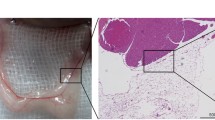The pathophysiologic mechanisms that underlie acute and chronic pancreatitis arising from alcohol abuse are poorly understood. The reasons for this state of knowledge result historically from a lack of models for experimental investigation. Ethanol feeding alone, even at high doses, has minimal and inconsistent effects on morphologic findings in the pancreas in experimental animals. This experience, plus the fact that alcohol abuse causes pancreatic pathology in only a minority of patients, suggest that ethanol acts to sensitize the pancreas to the deleterious effects of other stimuli. In this article, we discuss findings to support this concept of ethanol as a sensitizing agent and experimental models developed that can be used to investigate the effects of ethanol on the pathologic processes of pancreatitis. These pathologic processes include inflammation, cell death, intrapancreatic digestive enzyme activation, and fibrosis.
Similar content being viewed by others
Author information
Authors and Affiliations
Rights and permissions
About this article
Cite this article
Pandol, S., Gukovsky, I., Satoh, A. et al. Emerging concepts for the mechanism of alcoholic pancreatitis from experimental models. J Gastroenterol 38, 623–628 (2003). https://doi.org/10.1007/s00535-003-1134-7
Received:
Accepted:
Issue Date:
DOI: https://doi.org/10.1007/s00535-003-1134-7




